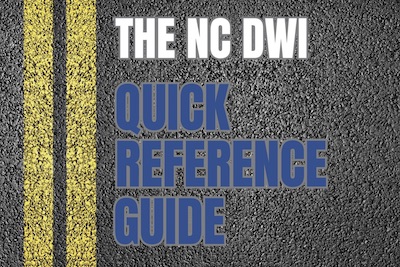What is Injury to Personal Property in North Carolina? How is that different than Injury to Real Property? Are they misdemeanor or felony charges?
Article 23 of the North Carolina criminal laws (Chapter 14: Criminal Law) makes it illegal to “willfully and wantonly” injure or damage the property of another. It refers to those criminal charges as “Trespasses” to property, the personal property, of another.
That’s more serious than a NC misdemeanor criminal sentence for certain assault and assault and battery charges. The NC criminal laws for Injury to Personal Property do not require the property to be destroyed under N.C.G.S. 14-160.
That is different from Injury to Real Property in North Carolina, which involves “any real property” and does not have a value aspect for damages that determines the class of misdemeanor charges (Class 1 or Class 2). Real property in North Carolina normally is thought of as buildings or land.
Indeed, with regard to Injury to Real Property, the NC criminal laws include intentionally damaging, destroying or injuring, including any public real property or any privately-owned real property in North Carolina. See: N.C.G.S. 14-127
And unlike Injury to Personal Property, and the $200 over-under aspect of misdemeanor sentencing, all violations of Injury to Real Property are automatically, under the NC sentencing laws, a Class 1 misdemeanor.
Both Injury to Personal Property and Injury to Real Property require a showing of “willful and wanton” behavior causing the damage, as opposed to an accident or accidental damage. A Class 1 misdemeanor can be punished up to 120 days in jail. Class 2 misdemeanors in North Carolina carry a maximum of up to 60 days in jail.
Is Injury to Personal Property a Civil Case or Criminal Case in North Carolina? The offenses of Injury to Real Property and Injury to Personal Property are criminal charges. But, family law attorneys in North Carolina, who also provide legal representation for allegations of criminal charges for domestic violence, understand the implications to each type of legal proceeding.
“NC domestic lawyers and criminal defense attorneys may see the same behavior touch more than one area of law. The destruction of property is all-too-often intended as a way to hurt another person, an ex-spouse, for some retaliatory and illegal purpose.” Bill Powers, Charlotte Family Law Attorney
![car damage]()
Everyone has seen the commercials, where a cheating spouse comes home, only to see everything they own on the front lawn, smashed to pieces or set on fire. That may seem funny, until you find yourself arrested and looking at Class 1 misdemeanor charges in criminal court or sitting in Family Court (Civil Court) with a show-cause Order for contempt.
As such, both experienced criminal defense lawyers Charlotte NC and family law attorneys, as part of legal representation, counsel clients not to act out and not give into anger. That includes avoiding both physical confrontations and damaging or destroying the belongings of another.
That is sometimes easier said than done.
Other criminal charges may have consequences to both a civil case or criminal case (allegations of criminal charges) involving allegations of assault, assault and battery, Interfering with emergency communication or other misdemeanor assaults, affrays, batteries, simple and aggravated.
It’s a Class A1 (aggravated misdemeanor in NC) if a male aged 18 or older “assaults a female.” It’s also a Class A1 misdemeanor if someone assaults, commits an assault and battery, or is involved in an affray in North Carolina, if that person:
- Uses a Deadly Weapon
- Inflicts Serious Injury
- Assaults a Child Less Than 12 years Old
- Assaults an Employee of the State – In Official Duties
- Assaults an Officer – Discharging or Attempting to Discharge Duties
- Assaults a School Volunteer or School Employee – In Discharging Duties as Volunteer
![broken glass]()
As you might imagine, if something gets broken during such an assault, affray, and assault and battery, that may also give rise to charges involving Injury to Personal Property in North Carolina.
Domestic violence charges involving Assault on Child, Assault on Female, Communicating Threats, and Assault with Deadly Weapon (AWDW) also result in the issuance of an ex parte DVPO Domestic Violence Protective Order in North Carolina.
A1 misdemeanor charges NC (aggravated misdemeanors) carry a maximum jail sentence of 150 days in North Carolina. There may be other requirements in judgments for misdemeanor or felony criminal charges including mental health treatment, Supervised Probation, EM Electronic Monitoring, House Arrest, Intensive Probation, Court Costs, Fines, Community Service and restitution to the victim.
Now is the time to call the criminal defense lawyers Charlotte NC and family law attorneys at our law office : 704-342-4357
Helpful Information About Criminal Charges 
 Powers Law Firm PA Home
Powers Law Firm PA Home





















